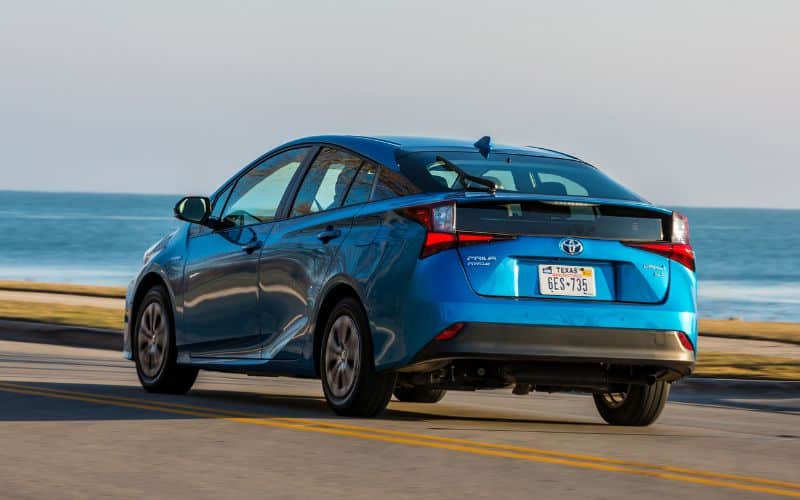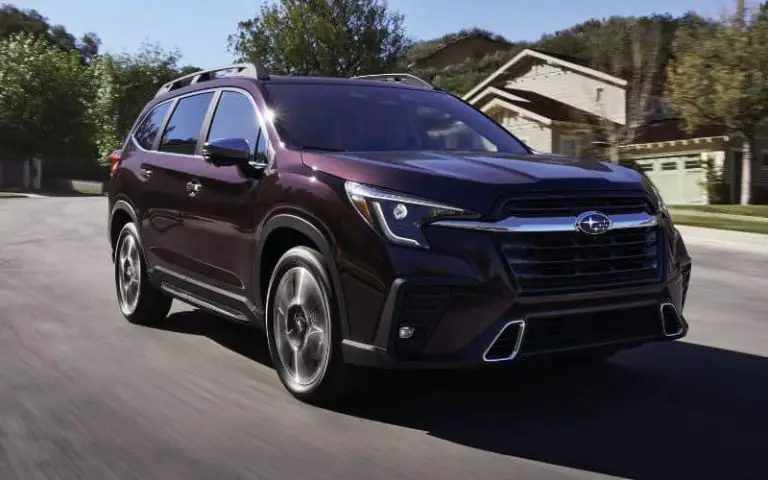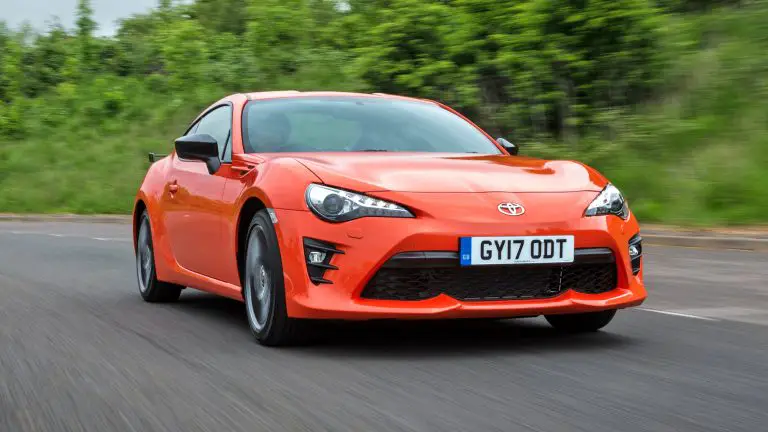Toyota Prius Best and Worst Years (Top Picks!)
The Toyota Prius was the first hybrid vehicle to reach mass-market status when it was introduced in the US in 2000.
It is renowned for its excellent gasoline efficiency, affordable price, and first-rate dependability.
We’ll look more closely at which Prius years are the best in this piece and which ones you should avoid.

VIDEO: Why The Toyota Prius Is Best Used Car
Toyota Prius Best and Worst Years
According to different sources, the best years for the Toyota Prius are 2020, 2021, 2019, 2018, 2017, 2016, 2015, and 2003. The Toyota Prius’ worst years are typically regarded as 2010–2015. According to some sources, the 2017–2020 models are also secure to buy and have experienced very few issues. However, most people advise staying away from the first two versions of the Prius, which were produced from 1997 to 2008.
What Are The Toyota Prius’ Best Years?
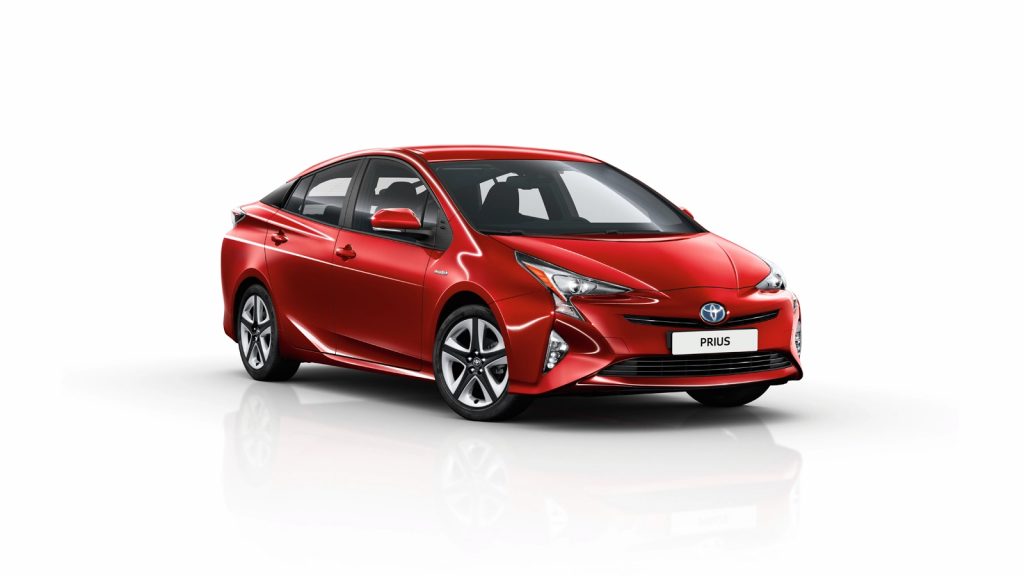
The Prius years that should be regarded as the finest are listed below.
Toyota Prius 2022
Given that cars are machines, not fine wines, it should not be surprising that some of the finest Prius models are also the most recent.
The most cutting-edge Prius models are the most recent ones, with the most modern driving assistance and safety technology.
Like other Toyota models, the 2022 Prius debuted a Nightshade trim in three metallic hues. (solver, midnight black, and super white).
For variants of this model with front-wheel drive and all-wheel drive, alloy wheels measuring 17 inches and 15 inches, respectively, are also included.
The heating of the steering column and front seats was also standardized.
- Edmunds: 5 out of 5
- 4.5 out of 5.0 on Kelley Blue Book
- 76 of 100 for JD Power
Toyota Prius 2021
The 2021 Prius offers a dependable and fuel-efficient ride while keeping tradition.
Although a particular Prius 2020 Edition was introduced to commemorate two decades of sales in the US, there were no significant changes for this model year.
Additionally, automatic high beam headlamps and pedestrian and bicycle recognition were added as standard features for this model year.
- Edmunds: 4.4 out of 5
- 4.5 out of 5.0 on Kelley Blue Book
- 76 of 100 for JD Power
Toyota Prius 2020
The 2019 model year’s Toyota Prius was primarily carried over into the 2020 model year’s Prius, but a standard 7-inch touchscreen infotainment system was introduced. (which replaced the original 6.1-inch display system).
The touchscreen was increased to 11.6 inches for the unique edition trims.
For improved connectivity and utility across various devices, Apple CarPlay and Amazon Alexa were also incorporated similarly to the infotainment system.
- Edmunds: 4.3 out of 5
- 4.5 out of 5.0 on Kelley Blue Book
- 71/100 JD Power
Toyota Prius 2019
Prominent auto critics and consumers equally gave the 2019 Prius high marks.
To appeal to a broader range of customers, the 2019 model debuted with a slightly revised exterior (to address complaints about the vehicle line’s appearance and style) and a brand-new all-wheel-drive variant.
Updates to the exterior’s appearance include improvements to the front and back bumpers, additional paint shades, and wheel designs.
- Edmunds: 4.5 out of 5
- 4.5 out of 5.0 on Kelley Blue Book
- JD Power: 79 out of 100
Toyota Prius 2018
The 2018 Prius has drawn some flak for its eccentric styling but still gets great gas mileage.
The 2018 Toyota Prius was introduced, but only with a few modifications.
Adding an 11.6-inch touchscreen for the higher-end trims was the only significant change.
- Edmunds: 4.61 out of 5
- 4.5 out of 5.0 on Kelley Blue Book
- 83 of 100 for JD Power
Toyota Prius 2017
The most extensive redesign went into the 2016 Toyota Prius, but there were some growing pains.
As a result of its revised design, better ride quality, and spacious interior, the 2017 Toyota Prius, on the other hand, overcame these problems and saved the day.
- Edmunds: 4.7 out of 5
- 4.5 out of 5.0 on Kelley Blue Book
- JD Power: 85 out of 100
Toyota Prius 2015
The 2015 Prius is renowned for its exceptional fuel efficiency, generous backseat space, and smooth journey.
The 2015 model is still a good option all-around even though it is a few years outdated, and there have been few complaints about it.
The rearview camera, which came standard on all trim levels, was a noticeable improvement for this generation.
- Edmunds: 4.4 out of 5
- 4.7 out of 5.0 on Kelley Blue Book
- JD Power: 82 out of 100
Toyota Prius 2003
The 2003 Toyota Prius did not undergo any substantial changes from its predecessors, but it was chosen because of its high consumer ratings and a comparatively small number of issues, recalls, and complaints.
However, if you decide to buy this old car, we advise inspecting it by a trustworthy mechanic with experience working on hybrid vehicles.
- Edmunds: 4.9 out of 5.
- 4.7 out of 5.0 on Kelley Blue Book
- N/A JD Power
What Are The Toyota Prius’s Worst Years?
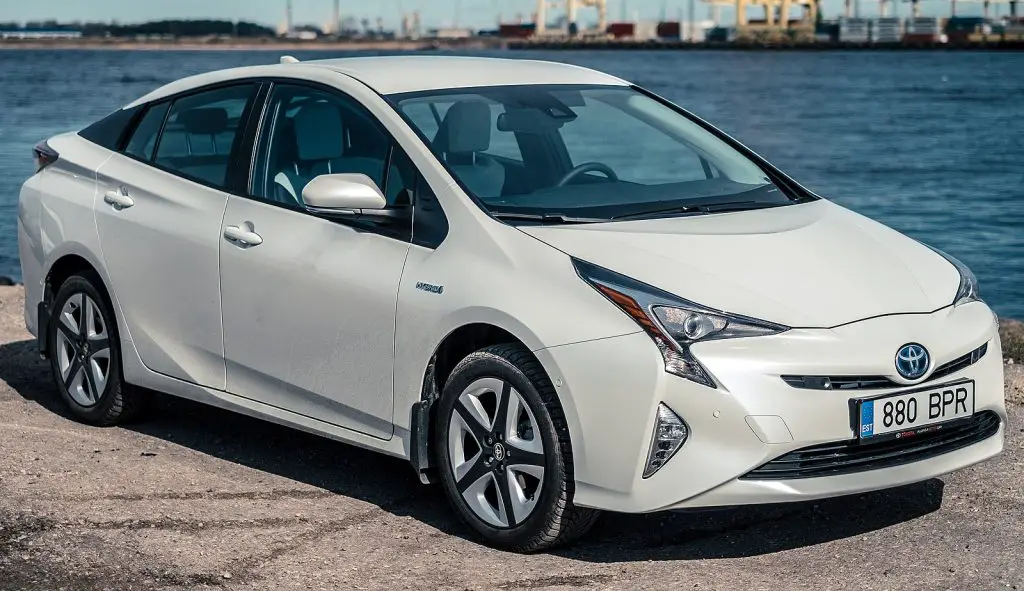
Over the years, several grievances and problems with the Toyota Prius have also existed.
Therefore, the following model years should be avoided.
Toyota Prius 2012
When the 2012 Toyota Prius first came out, it had many problems. According to several accounts, applying the brakes while driving caused the car to vibrate and some warning lights to illuminate.
There were 59 complaints about the 2012 Prius overall on CarComplaints.com and 637 issues on CarProblemZoo.com.
Common issues:
- Brake malfunction
- The vehicle won’t start
- Entune, an issue with connecting a mobile device to a vehicle
Toyota Prius 2011
The 2011 Toyota Prius received the infamous “Avoid like the plague” honor from CarComplaints.com due to its fair share of issues with service brakes, the electrical system, and exterior lighting.
Standard brakes have reportedly failed to activate while a vehicle moves, increasing the risk of an accident.
One hundred fourteen complaints about the 2011 Prius overall on CarComplaints.com, and 515 issues were reported on CarProblemZoo.com.
Common issues:
- A lot of oil usage
- Working brakes
- Traction control and ABS indicators are on
- The air conditioner failed
Toyota Prius 2010
This model year should be avoided at all costs, according to CarComplaints.com, and with good reason.
The 2010 Prius is arguably the worst model year, with roughly 3,500 issues and complaints.
The brakes’ persistent inability to engage was considered the most significant mechanical problem and a serious safety hazard.
CarComplaints.com and CarProblemZoo.com recorded three hundred thirteen complaints and 3,232 issues involving the 2010 Prius.
Common issues:
- Failing to brake
- A lot of oil usage
- peeling paint
- The traction control, stop, and ABS lights were turned on.
- Unsuccessful master cylinder
Toyota Prius 2009
A defective brake actuator caused stopping problems for the 2009 Toyota Prius.
Due to this, braking became uneven or ineffective, resulting in safety problems and lower fuel efficiency ratings.
Fundamental issues for the 2009 Prius were 104 on CarComplaints.com and 596 on CarProblemZoo.com.
Common issues:
- Brake actuator failure
- HID light malfunction
- Headlight briefly flashes before going out
- On are the emergency stop and anti-skid lights.
Toyota Prius 2008
The 2008 Toyota Prius had several electrical problems, but the most common complaints were faulty headlights that would flicker or go out.
One of the owners claimed that the Prius failed to show information from the gauge cluster, including the gasoline gauge, headlight indicators, warning indicators, and other status updates, making every journey risky and unpredictable.
There were 258 complaints about the 2008 Prius on CarComplaints.com and 1,825 issues on CarProblemZoo.com.
Common issues:
- Headlights that aren’t working
- Sporadic floodlight failure
- A lot of oil usage
Toyota Prius 2007
There were significant headlight problems with the 2007 Toyota Prius; according to some accounts, the headlight and taillight bulbs prematurely burned out.
It was determined that this posed an obvious safety risk because it would reduce the driver’s visibility, especially at night.
There were 250 complaints about the 2007 Prius on CarComplaints.com and 2,394 issues on CarProblemZoo.com.
Common issues:
- Headlights intermittently go out while traveling
- Headlights run out too soon
- On the check motor light
Toyota Prius 2006
Similar issues plagued the 2006 Toyota Prius as they did its forebears and successors.
Burnout and ballast failure were the two leading causes of frequent headlight failure.
Owners claimed this was both a safety and a legal problem because it is against the law for vehicles to be driven with damaged headlights.
There were 127 complaints about the 2006 Prius overall on CarComplaints.com and 1,652 issues on CarProblemZoo.com.
Common issues:
- Sometimes headlights fail to turn on.
- A lot of oil usage
- Faulty computer systems
Toyota Prius 2005
The Toyota Prius from 2005 also had problems with the headlights.
Several accounts claim that the headlights occasionally stopped working even after changing the bulbs.
Some owners even claimed that their lights began to flicker mid-drive, which made for a very hazardous driving situation.
There were 70 complaints about the 2005 Prius on CarComplaints.com and 1,271 issues reported on CarProblemZoo.com.
Common issues:
- Headlights automatically switch off
- Dead hybrid battery
- Continually burnout headlights
Toyota Prius 2004
The 2004 Toyota Prius had a lot of issues with electronics, particularly the headlights, much like many of the earlier entries on this list.
Even worse, a report claimed that headlight flickering happened more than once in a single journey, with one estimate placing the frequency at three times every 15 minutes.
Fundamental issues for the 2004 Prius were 22 at CarComplaints.com and 732 at CarProblemZoo.com.
Common issues:
- Turns off erratically while driving
- Headlights operate sporadically.
- While traveling, the engine stops.
How Safe Is Toyota Prius?
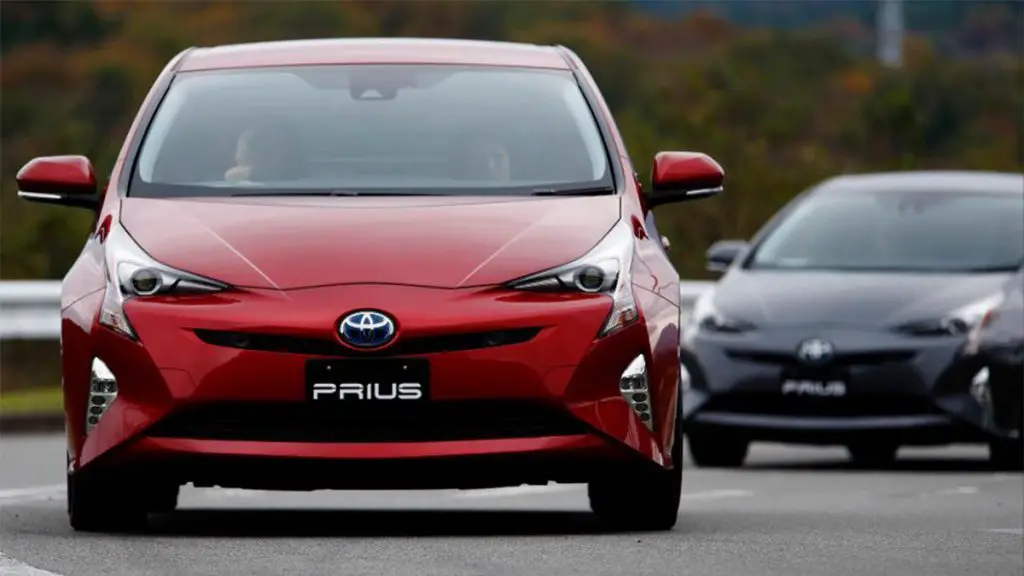
The Toyota Prius is typically regarded as a secure vehicle. It includes emergency braking, adaptive cruise control, forward collision warning, and Toyota Safety Sense 2.0 Pre-Collision System with Pedestrian Detection as standard equipment.
The National Highway Traffic Safety Administration has awarded the 2021 Toyota Prius a 5-star overall safety ranking, and the Insurance Institute of Highway Safety has named it one of its 2019 Top Safety Picks. However, the 2023 Toyota Prius has yet to undergo either organization’s accident tests.
Reliability of Toyota Prius
Several sources claim that the Toyota Prius is usually regarded as a dependable vehicle. The Toyota Prius has been among the least problematic vehicles since the second iteration.
The Toyota Prius’s most significant and worst production years are 2000, 2001, 2002, 2003, 2004, and 2016–2020, respectively. The 2019 Prius was created with long-distance travel in mind and was the first to have an all-wheel drive.
The Toyota Prius has some “lifetime” parts that, on average, last between 120,000 and 150,000 kilometers. However, the third generation of the Prius had several issues that hindered their driving ability and occasionally endangered their lives.
How to find the best deals on a Toyota Prius?
Start by searching the official Toyota website for discounts and incentives on brand-new Prius models to discover the best deals on a Toyota Prius.
Additionally, you can look for lease offers, choices, and packages on websites like TrueCar and Edmunds. Searching for the Toyota Prius’s best years—generally regarded as 2020, 2021, 2019, 2018, 2017, 2015, and 2000—is another way to discover a good deal.
Additionally, you can inquire at nearby dealerships to see if special deals or discounts are offered on used or certified pre-owned Prius versions.
Finally, to ensure you’re receiving the best bargain on a Toyota Prius, it’s wise to compare prices and offers from various sources.
Tips for maintaining your Toyota Prius

The following advice will help you manage your Toyota Prius:
1. Comply with the suggested maintenance schedule: The recommended maintenance schedule for the Toyota Prius calls for frequent oil changes, tire rotations, and brake inspections. Maintaining your Prius on this schedule can help you avoid future costly repairs and keep it operating smoothly.
2. Maintain proper tire pressure: Maintaining proper tire pressure can increase fuel efficiency and prolong the life of your tires. Regularly check your tire pressure and set it to the suggested setting.
3. Use high-quality parts and fluids: To guarantee optimal performance and dependability, replace any parts or fluids in your Prius with high-quality OEM (original equipment manufacturer) parts and fluids.
4. Be aware of typical problems: Some Toyota Prius models have experienced problems with high oil consumption, automatic headlight shutoff, and easily cracked windshields. Keep an eye out for these problems and deal with them right away if they arise.
5. Take advantage of discounts and incentives: Look for discounts and incentives on new Prius models, lease offers, and funding choices on the Toyota website and other sources.
6. Plan for upkeep expenses: A Toyota Prius’s maintenance and repair costs are estimated to be around $4,008 by CarEdge.
In its first ten years of operation, a Toyota Avalon will cost about $4,407 for upkeep and repairs, which is $2,689 less than the industry average for popular sedan models.
According to MotorBiscuit.com, the Toyota Avalon is renowned for its outstanding reliability ratings and regularly ranks at the top of vehicle rankings.
Owners of Toyota Avalon vehicles can contribute to ensuring the security and dependability of their automobiles by considering these aspects and keeping up with regular maintenance and required repairs.
How Can You Tell Whether Something Is a Lemon?
Purchase a vehicle history report.
There is no better initial step when purchasing a used car than to obtain a car history report. Two well-known services offer this information for little money: Anyone looking to purchase a used car will find the information provided by CarFax and AutoCheck extremely helpful.
The reports let you know the number of past owners, whether or not it had any accidents, how frequently it required maintenance, and the current title.
The final section is among the most crucial since it contains the lemon label, which attests that the car followed the correct legal procedures to be designated as a lemon.
However, in some areas, dealers must inform a customer if the vehicle is a manufacturer buyback, which is a reliable way to determine whether a vehicle has a lemon title. However, it is the responsibility of the buyer to conduct a thorough investigation into the vehicle’s history.
Therefore, consumers may need help if they accidentally purchase a secondhand lemon because they must inspect it first.
Owner Background
You can view the owner’s history on the vehicle history report, which should indicate whether the manufacturer has purchased the vehicle back.
While owners can claim a car is a lemon in a legal dispute and ask the automaker to buy back the problematic vehicle, that is a guaranteed technique to determine if the car was labeled a lemon.
You can also determine if the vehicle was sold or traded before it was given a lemon tag if the prior owner may have missed an issue. It also implies that the car’s persistent issue must be apparent.
Repair Record
Look carefully at the vehicle’s repair record and try to identify any recurring issues. Recurring problems in cars with lemon histories are simple to spot. You can determine whether the issues with the car are minor wear and tear concerns, such as those with the clutch or brakes, or a more severe problem.
Check to discover if the repairs were necessary or carried out even when the car was brand new. It can assist in determining whether the car is a lemon or if an incident like a collision or modification caused a misdiagnosed issue.
Are the repairs significant or minor? A severe repair would deal with the drivetrain or suspension, whereas a superficial one would address non-driving-related issues like window or seat controls. Severe repairs would be more challenging, but handling a car might not be a hassle if a car was considered a lemon for a less severe cause.
The report also shows whether repairs are being made at a dealership or a general shop.
Like you would with any used car, examine the vehicle’s general condition and health and determine whether routine maintenance has also been carried out. This will assist you in deciding whether or not you should consider purchasing this car.
Inspection before purchase
Is the car still a good investment? You should get a pre-purchase inspection if the flaws are not too concerning or if you believe the automobile may have been incorrectly labeled as a lemon.
A mechanic can determine whether the problems are repairable and why the car was considered a lemon.
A technician can assist you in determining whether or not a recurring issue is indicative of more severe problems or worries about the quality of the vehicle.
Their satisfaction with the car might help determine if it is a worthwhile investment or a lost cause.
Toyota Prius FAQ’s
Which Toyota Prius model year is best?
Five stand out to CarComplaints in its list of the best cars out of the decades of information and model years available: 2009, 2015, 2017, 2018, and 2019. The second series of Prius models ended with the 2009 model.
What Prius models should you avoid?
Nissan Leaf years to come
While there are many trustworthy Toyota Prius models available, it is best to stay away from models that were released in years like 2007, 2008, 2010, 2012, and 2016 due to the high number of complaints received from customers in those years. We’ll examine some of them in greater depth.
Which generation of Prius is most dependable?
High oil consumption in models from 2004 to 2007 caused engine and reliability concerns. Early Prius versions also had headlights that were out of alignment and paint that was peeling. Overall, the Prius model iteration that debuted in 2017 is the most dependable.
Can Prius last 15 years?
The only car on the list above that actually had a better track record than the Highlander was the Toyota Prius, with an astounding 13.7% of all Prius models still in use more than 15 years after their owners bought them.
Toyota Prius dependability?
Overall Reliability Scores: How Reliable Is the Toyota Prius? The Toyota Prius is very dependable with an overall reliability rating of 87.05. The exact rankings of this car in relation to various other cars are shown in the chart below, however as a point of reference, the average overall rating is 57.
John Valdez - Passionate Car Enthusiast and Accomplished Writer
Meet John Valdez, a dedicated car lover and seasoned writer whose passion for automobiles is as vibrant as his words are eloquent. With a keen eye for detail and a heart that beats to the rhythm of engines, John brings a unique blend of expertise and enthusiasm to the world of automotive journalism.

